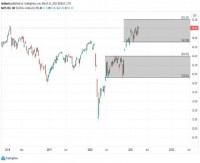|

As families across the globe get more sophisticated in their investment approach, a new trend is emerging - families are working with each other to invest directly or seed their own funds rather than working with outside teams. Family offices have often had members with financial markets expertise lead their investments, but that has typically been in concert with outside managers and consultants. Now, families are focused on working with each other and finding under the radar investment oppor tunities that are aligned with their goals. "Families have always worked together on direct deals, and, invested outside traditional asset management frameworks – but that trend increased following the GFC," says Roxanne Davies, Managing Director at Parly Singapore Pte. Ltd. Parly Singapore is the Asian outgrowth of Parly Company, a family office based in Geneva, Switzerland. "Increasingly, we work with families or entrepreneurs that have specific industry expertise to invest within a specific ecosystem. This may take form of seeding a GP, for example, to invest into the blockchain space, or simply investing in a direct company. Rather than going into a traditional fund manager who is learning with your capital, families are looking for primary sources to invest with, so control, costs and incentives are optimized." According to Davies, families often prefer to work with other families because they have similar perspectives related to investments. Organizations like Parly, which have a long history of sourcing alternative investments and working with other families, have emerged as key players in the trend. "I think what people often miss is family office professionals are expert generalists as they need to have a certain level of understanding across geographies, asset class types and industries. They're always looking for new ideas and trends that will materially affect their portfolios. In many cases, however, they fund a great idea as an ethos to promote innovation, conserve the environment or because it resonates with their own passion – and profit is not the main driver of that decision," Davies says, noting also that technology today allows for a more active kind of investing than has been available to family offices in the past. So, is it the end for investment funds? Hardly. Funds public and private are likely to remain as a core investment for family offices, but in many ways, the ruminations of active managers are becoming less important than they have in the past. "There is real talent in the investment management industry but as AUM grew - so did the number of subpar managers. Talent then moved to other niches and a new wave of high performers emerged. As a result, family offices need to focus on the way they need to express their risk allocations. They have to balance relationships with their managers against the longterm goals of the portfolio," Davies says. "Technology helps bring a new level of transparency and ability to the families them selves. Which puts that much more pressure on managers to show that they create value." As families look at managers, smaller funds with a quantifiable edge may continue to capture more of the family office asset flows, in their first few years Davies notes that the influx of global institutional money into alternative asset managers over several decades has been very profitable for the managers. Their legal documents allowed them to take more risk, charge higher fees, longer lockups, and, their structures made them less and less liable for that risk. After the GFC - large investors, whether institutions or families, demanded lower fees, customised risk, direct investment opportunities, and/or other specifics, from their managers. While asset managers may believe they need to bring more to the table for lower fees than before – there are still significant 'other' fees most investors don't pay attention to, as they still don't always read the documents or financials. Those fees remain significant performance drags over time. So it is hard to tell if the playing field has truly levelled off – but, it has improved. Doing direct deals, with families or other, is not simple. Great or even good deals are not easy to source, and, when there is trouble, operational roles or problems are not easy to manage. Problems in portfolios take up a lot of senior management time and resources. The industry will see different cycles and preferences, pro or against the third-party allocation models, but, in the end, a hybrid model aligning interests and incentives, alongside talent, remains the optimal model. Families need to structure their portfolios to keep what is core, internally managed/ controlled, and, seek strong outside partners that can help execute the rest of their requisite risk allocations. B. McCann Roxanne Davies is the Managing Partner of a global investment holding company, set up to manage direct investments and operational businesses for four global family offices. A family office veteran of near 30 years, she has managed operational businesses and multi-asset investment portfolios around the world, including the US, Russia, Brazil, Thailand, Singapore and Switzerland. Roxanne held positions such as Head of Private Equity and Head of High Net Worth Clients in banks such as HSBC and Union Bancaire Privee respectively, with deep expertise and focus in alternative asset management. She has held Board memberships on both listed and private companies. Roxanne has also been on the fund raising boards of the Singapore Red Cross, SPCA, Human Rights Watch and several private charitable foundations. She has been a speaker and panellist at several industry conferences such as Skybridge's SALT and Campden Wealth amongst others. She is Swiss, born in Manhattan, NYC and holds a Masters in Finance as well as a Masters in Business Administration (HEC- University of Geneva).
| ||||
|
Horizons: Family Office & Investor Magazine
Co-Investments: Why Families Like To Work With Families |
|





 RSS
RSS









